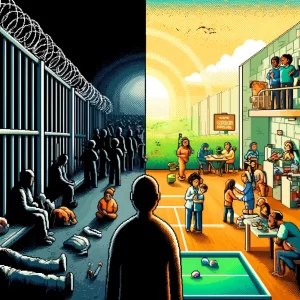
The Power of Peer Support in Overdose Prevention
In the ongoing battle against the overdose crisis, a powerful ally has emerged: peer support. A recent comprehensive review highlights the pivotal role of individuals with lived experience in overdose prevention interventions. By leveraging their unique insights and experiences, peers are not only saving lives but also transforming the way we approach harm reduction.
The Overdose Crisis: A Persistent Threat
Drug-related overdoses are a leading cause of death in many countries, including the United States and Canada. The crisis is driven by a variety of factors, such as the rise of synthetic opioids, polysubstance use, and the increasing prevalence of stimulants and new psychoactive substances. Those most at risk are often dealing with unstable housing, poverty, poor health, and criminalization. Harm reduction strategies, which aim to minimize the negative impacts of drug use rather than eliminate it entirely, have been effective in addressing these issues. Peer support is a crucial component of these strategies, offering a unique and deeply personal form of assistance.
What Is Peer Support?
Peer support involves individuals with lived or living experience of a particular issue providing support to others facing similar challenges. In the context of overdose prevention, this means people who have used illicit drugs offering their help and expertise to others in their community. This approach is rooted in empathy and shared experience, creating a level of trust and understanding that traditional health services often struggle to achieve.
The Importance of Peer Support in Overdose Prevention
The review found that peers are invaluable in creating trusted services for people who use drugs. They play diverse roles, from distributing naloxone (a medication that can reverse overdoses) to educating their peers about safer drug use practices. Peers are often more trusted than medical professionals because they have firsthand experience with the issues facing their communities. This trust is critical in encouraging individuals to engage with harm reduction services.
Real-World Impact: Stories from the Field
One striking example comes from Vancouver, Canada, where a peer-run supervised consumption site has operated for over a decade without a single overdose death. The facility provides 24/7 naloxone availability and is staffed by individuals with lived experience, creating a safe and supportive environment for drug users. This approach has proven so effective that it has been recommended for broader implementation.
Another story highlights the role of peers in naloxone education programs. In New York City, people who inject drugs were trained to administer naloxone, resulting in numerous lives saved. Participants reported feeling empowered by their ability to intervene during an overdose, underscoring the psychological benefits of peer involvement.
Challenges Faced by Peer Workers
Despite their crucial role, peer workers face significant challenges, including stress, trauma, and burnout. The review noted that exposure to fatal or non-fatal overdoses can lead to severe emotional strain. Additionally, peers often feel undervalued and unsupported by the organizations they work with. Many report a lack of proper compensation and recognition for their work, contributing to feelings of frustration and fatigue.
Supporting Peer Workers: A Path Forward
Addressing these challenges is essential to maximizing the effectiveness of peer-involved interventions. Organizations must recognize the value of peer workers and provide them with adequate support. This includes fair compensation, access to mental health resources, and opportunities for professional development. By investing in the well-being of peer workers, we can ensure they continue to provide vital services to their communities.
Why This Matters to You
Understanding the role of peer support in overdose prevention is crucial for anyone interested in public health, social justice, or community activism. Peers are on the front lines of the overdose crisis, offering lifesaving interventions and support to those most in need. By supporting peer-led initiatives, we can create more effective and compassionate harm reduction strategies.
Let us know in the comments!
- Have you ever been involved in or witnessed a peer support initiative in your community? How did it impact the individuals involved?
- What are some ways that organizations can better support peer workers to ensure their well-being and effectiveness?
Boost Your Public Health Knowledge – Subscribe and Make a Difference!
Unlock important knowledge with “This Week in Public Health.” Each issue has insights on key research, community health successes, and tips for advocacy. Don’t just learn about change – drive it. Subscribe for free and start making an impact with every issue!
About the Author
Jonathan P. Scaccia, PhD is a clinical-community psychologist with a robust background in public health science and practice. He has led innovative evaluation and research initiatives targeting health equity, vaccine distribution, and organizational readiness. Dr. Scaccia has significantly contributed to major projects, including federal suicide prevention programs and vaccine equity strategies. He has provided expert consultation on public health improvement and evaluation for both national and international NGOs. His work, characterized by a commitment to accessible and impactful public health solutions, has been recognized with awards from the American Evaluation Association and the Society for Implementation Research Collaboration. Dr. Scaccia’s expertise in natural language processing, data analysis, and community-based research makes him a leading voice in advancing public health practices.



